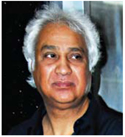Health Topics
-
Healthy Living
-
|
| |
| Successful Ageing |
| Prof Adrian Kennedy
|
| |
Successful agers
The first study on successful agers (above 90 years of age) was initiated by Cambridge University in the year 1900; this was followed by several other studies including the Baltimore study of 1958, the UCLA study of 1965, and the Alexander Leaf study of 1975. The Alexander Leaf Centenarian’s study in Russia found that the average age was 103 years, BP was 120/80 without medication, pulse 74bpm, most did not need spectacles for reading, and most lived in a cool climate (2°F–15°F). Other characteristics of the successful agers included: |
| |
- An easy going personality
- arried, with family and friends
- Moderate and frugal eating habits, mostly vegetarians
- Physically active, mostly farmers
- Walked 20 kms a day
- Never hurried and hated deadlines
- Spent most of the time outdoors in fresh air and cool climate
- Got 8 hours of sleep, rest, and relaxation
- Were sexually active and maintained good hygiene
- Consumed moderate alcohol and stimulants and no tobacco
|
|
Increased longevity
The UCLA study quantified the impact of a good or bad lifestyle on longevity in the following manner. According to the study, physical activity benefited the lifespan by adding 10 years to it; whereas obesity reduced lifespan by a similar period. Sleep and relaxation added 8 years to a lifespan; however, stress negatively impacted longevity by 5 years. The Baltimore study, on the other hand, indicated that a good or bad lifestyle impacts genetics and increases or decreases the lifespan by over 32 years cumulatively, beyond the genetic calculation.
|
| |
|
Factors for increasing longevity by over 13.5 years
(In order of importance)
|
| Male |
Female |
| Financial Security |
Marriage |
| Physical Activity |
Physical Activity |
| Mental Occupation |
Mental Occupation |
| Marital Status |
Hygiene and Diet |
| Hygiene and Diet |
Financial Security |
|
| |
|
Lifestyle Longevity Predictors
|
| Take daily medication |
|
If yes minus, if no plus |
| Exercise daily |
|
If yes plus, if no minus |
| Have job satisfaction |
|
If yes plus, if no minus |
| Are highly stressed |
|
If yes minus, if no plus |
| Are competitive, result oriented, and time pressured |
|
If yes to any minus, if no to all plus |
| Have dependable and good friends |
|
If yes plus, if no minus |
| Are currently married |
|
If yes plus, if no (incl. divorcee, widowed) plus |
| Are currently sexually active |
|
If yes plus, if no minus |
| Are overweight |
|
If yes minus, if no plus |
| Are currently vegetarian (i.e., no meat, eggs, etc.) |
|
If yes plus, if no minus |
| Live in a cold climate |
|
If yes plus, if no minus |
| Get 7/8 hours daily sleep |
|
If yes plus, if less minus |
| Consume moderate alcohol about once a week |
|
If more minus, if occasionally plus, if never no point |
| Indulge in smoking and narcotics |
|
If yes minus, if no plus |
| Are health and safety conscious |
|
If yes plus, if no minus |
|
|
| |
So what then is the advice for lifelong health, wealth, and happiness?
- Cultivate a circle of dependable friends.
- Get married. It would seem that any marriage is better than no marriage for a longer life.
- Do well to others, either individually or as part of a social group.
- Have faith, either in God, a religious system, or any other belief.
- Occupation, career, and money are important, not only for a long life but also for the quality of life.
- Stop comparing and competing. Acquire what you need for yourself and do not envy another’s persons success or goods.
- Strive to be without desire and ego.
- Age gracefully. Do not despair with ageing; each decade has it own joys and benefits.
- Love and maintain your body, the way you would maintain any prized
|
|
|
| |
 |
Prof Adrian Kennedy is Consultant, WellnessRx, International guru on health, wellness and lifestyle medicine and guest faculty for Harvard Medical School, USA. |
| |
|
|
| |
|